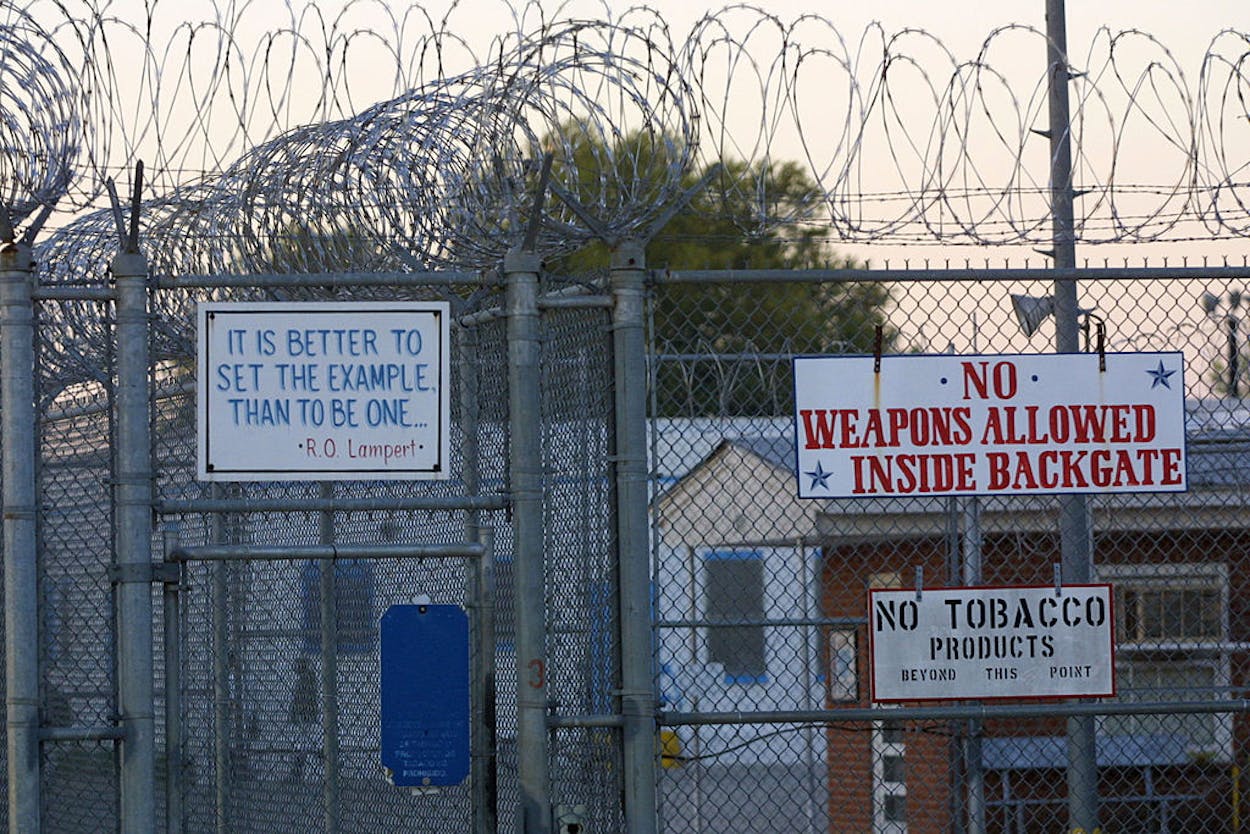An attorney in Amarillo released a trove of documents on Tuesday that he said shows the city is operating what essentially amounts to a debtors’ prison that forces thousands of poor people behind bars simply because they can’t pay municipal fines for minor violations. According to the Amarillo Globe-News, several of those people thrown in jail by the city of Amarillo were disabled, including a “veteran on social security who owed $539; a woman living on $490 a month from social security disability who owed $520; and a woman living on $723 a month in disability benefits who paid $16 of a $225 fine.”
Debtors’ prisons in America were banned under federal law way back in 1833, and a U.S. Supreme Court decision in 1983 ruled that judges can’t jail someone for failing to pay a fine unless it’s determined that they “willfully refused” to fork over their dough. But the definition of “willfully” was left up for interpretation, allowing de facto debtors’ prisons to persist. They’ve shown up recently all across the country, including here in Texas. An investigation by BuzzFeed News in October found that judges in El Paso were locking people up for unpaid traffic tickets without even considering whether they were actually able to pay those fines. The news outlet looked at twenty other Texas courts, and found nine that didn’t assess whether defendants were unable to pay their fines before sending them to jail.
The revelations in Amarillo came less than a month after the release a bombshell of an investigation from KPRC in Houston, which showed Harris County prosecutors locked a rape survivor in jail after she broke down on the stand while testifying against her attacker. In a videotaped statement, District Attorney Devon Anderson said she “fully” supported the prosecutor’s actions, adding that “there were no apparent alternatives that would ensure the victim’s safety and her appearance at trial.” The woman was placed in the general prison population. Her attorney told KPRC she was given a black eye by another inmate and punched by a jailer. She was in jail for nearly a month, missing Christmas.
Jailing witnesses is legal in Texas, though the law is geared more toward reeling in uncooperative witnesses rather than targeting distraught rape victims. The woman’s case prompted a quick internal audit of Harris County jails, and the results showed that another rape victim was recently imprisoned two months past the expiration date of her unrelated drug conviction, just because prosecutors wanted to be sure she’d testify against her attacker. Anderson later admitted that the second woman shouldn’t have been kept in jail for so long.
For all the bragging Texas does about supposedly leading the way in criminal justice reform, these specific incidents cast the state’s jails in a very negative light. A broader view of Texas prisons isn’t much better. A new study found that an astounding 7,000 in-custody deaths have occurred in Texas in the past ten years.
Meanwhile, the Texas Department of Criminal Justice is fighting a civil rights lawsuit challenging the lack of air conditioning in the state’s prisons, as well as a wrongful death lawsuit filed on behalf of eight inmates who died from heat stroke. According to the Dallas Morning News, 70 percent of Texas prisons don’t have air conditioning, and at least 20 prisoners have died since 1998 because of the heat.
Part of the air conditioning lawsuit was also about arsenic, which had been found in the water provided to prisoners. In June, a federal judge ruled that Texas can’t give inmates arsenic water anymore, writing that the high temperatures and poisonous water posed “substantial risk” to inmates’ health, adding that the TDCJ is “deliberately indifferent to that risk,” according to the Houston Chronicle.
And it looks like the state will now have to slash $250 million from the prison system’s budget. According to the Texas Tribune, some of the possible cost-cutting measures include shutting down dilapidated prisons (specifically, the ones that don’t have air conditioning but do have arsenic in the water), and keeping people out of jail who probably don’t have to be there (like non-violent offenders, or, you know, rape victims and disabled veterans who can’t pay traffic tickets). Texas’s most meaningful criminal justice reforms may yet arrive, but in the anticlimactic form of forced budget cuts.






